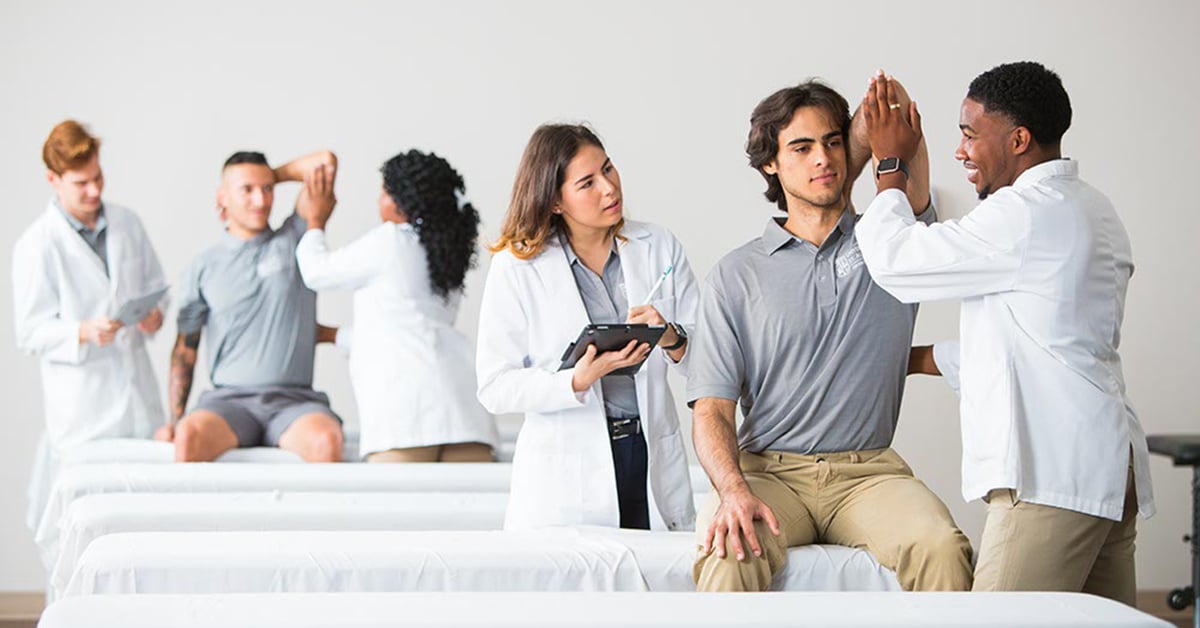
Doctor of Physical Therapy degrees are a combination of academic rigor, hands-on learning, and the development of practical skills. In DPT, the importance of clinical rotations, as well as experiential learning, is a distinguishing feature. They are vital to developing compassionate and capable physical therapists. In this article, I will focus on the importance of DPT program clinical rotations. I will also highlight the role that experiential learning plays in preparing DPT students for a successful career in the field.
Clinical Rotations - A Crucial Role
Clinical rotations bridge the learning gap between classrooms and actual-world applications. These rotations are an excellent way for students to get hands-on experience with patients and learn from experienced physical therapists. The following are critical aspects of their importance.
- Hands-on Skill Development: Clinical rotations provide DPT students with the opportunity to develop their skills by applying the theories they learned in class to actual patients. This hands-on experience helps build their clinical skills. These include assessment, diagnoses, treatment planning, therapeutic techniques, and more.
- Building Professional Relationships: Students will have an opportunity to work with licensed physical therapists during their clinical rotations. This interaction allows for mentorship, professional networking, and relationships to be formed that will prove invaluable in their careers.
- Developing Critical Thought: Clinical rotations encourage students to be critical and make informed choices in real time. This is often the case in complex situations. Future professionals should possess rapid thinking skills and the flexibility to adjust to their patients' changing requirements.
- Confidence: As students progress throughout their rotations, their confidence grows in their abilities to diagnose and treat patients. This newfound self-confidence is crucial for the transition from student to licensed therapist.
The Value of Experiential Education
Experiential teaching is not restricted to rotations in clinical settings. It encompasses an approach to learning that encourages active involvement and reflection. In DPT courses, experiential learning takes many forms.
- Simulated Encounters with Patients: In many DPT programs, students are given the opportunity to work with actors who play standardized or actual patients. This allows them to develop their clinical skills within a controlled environment. These simulations are a safe place for students to make errors, receive feedback, and improve patient interaction skills.
- Case-Based Learning: Case studies or problem-based learning exercises are used frequently to challenge students to use their knowledge in real-world scenarios. These activities foster critical thinking and evidence-based decision-making, as well as interdisciplinary collaboration.
- Research Projects: Engaging in research allows students to discover the latest advancements within the field. This hands-on approach to research fosters an inquiring spirit, encouraging students to remain updated on evidence-based practices.
- Community Outreach and Services Learning: Students are frequently involved in DPT programs that involve community outreach or service learning. Students are exposed to populations that are underserved and learn the importance of cultural competence and social responsibility.
- Interprofessional Learning: DPT students often collaborate with healthcare professionals from other disciplines to learn through experiential learning. Interprofessional education is designed to prepare students for communication and teamwork within the healthcare industry.
Conclusion
Clinical rotations, as well as experiential learning, are essential for the development of compassionate, patient-centered, and competent physical therapists. These experiences help DPT students develop the skills and knowledge needed to excel. DPT courses emphasize clinical practice, as well as active engagement with healthcare professionals. Graduates are then prepared to make positive impacts on patients' lives. Aspiring therapists will embark on their journey confident that these immersive experiences are important stepping stones toward their goal, which is to improve the quality of people's lives through physical therapy.
 icons at the top right corner of the subsection.
icons at the top right corner of the subsection.